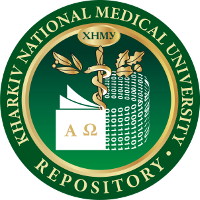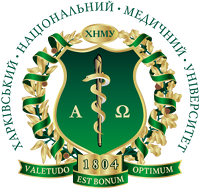Please use this identifier to cite or link to this item:
http://repo.knmu.edu.ua/handle/123456789/31372| Title: | Academic Integrity in the Conditions Forced Distance Learning |
| Other Titles: | Академічна доброчесність в умовах вимушеного дистанційного навчання |
| Authors: | Nalyvaiko, Oleksii Zhernovnykova, Oksana Nalyvaiko, Nataliia Molotok, Viktoriia |
| Keywords: | academic integrity students university academic culture forced distance learning академічна доброчесність студенти університет академічна культура вимушене дистанційне навчання |
| Issue Date: | Nov-2022 |
| Publisher: | Borys Grinchenko Kyiv University |
| Citation: | Academic Integrity in the Conditions Forced Distance Learning / O. Nalyvaiko, O. Zhernovnykova, N. Nalyvaiko, V. Molotok // Open Educational E-Environment of Modern University. – 2022. – Vol. 13. – P. 89–103. – DOI: https://doi.org/10.28925/2414-0325.2022.137. – URL: https://openedu.kubg.edu.ua/journal/index.php/openedu/article/view/2414-0325.2022.137. |
| Abstract: | The article examines issues of academic integrity under conditions of forced distance learning. An analysis of the current state of affairs in the university educational environment in the field of compliance with the principles of academic integrity was carried out. In the course of the study, respondents were asked to complete a survey aimed at determining the phenomena and factors that concern students in the conditions of forced distance learning of the 2020-2022 academic year and to decide on issues of academic integrity. Interviews were also conducted with student volunteers from various courses and universities who studied or are studying in conditions of forced distance learning. The results showed that, unfortunately, the percentage of students who regularly use cheating and incorrect borrowing has grown over these two years, but the reasons for this require further study, but it can already be said that the main factors that influence the manifestations of academic dishonesty in the environment students are: a new learning environment (full online learning), the lack of systematic work on the formation of an academic culture and a combination of low motivation in online learning and a low level of independent work skills among students in a new environment. Based on the results obtained, recommendations were formulated both for participants in the educational process in the context of countering and preventing cases of academic dishonesty in online learning. Digital tools recommended for use in online learning include: Respondus LockDown Browser, Respondus Monitor, ProctorU, Purdue OWL, RefWorks, Grafiati, Unplag, Self Control. The integrated use of these digital tools will both control specific manifestations of academic dishonesty and form a culture of academic integrity based on openness and understanding of the importance of this process for students. |
| URI: | http://repo.knmu.edu.ua/handle/123456789/31372 |
| ISSN: | 2414-0325 |
| Appears in Collections: | Наукові праці. Кафедра української мови, основ психології та педагогіки |
Files in This Item:
| File | Description | Size | Format | |
|---|---|---|---|---|
| Наливайко_ACADEMIC INTEGRITY.pdf | 421,75 kB | Adobe PDF | View/Open |
Items in DSpace are protected by copyright, with all rights reserved, unless otherwise indicated.

